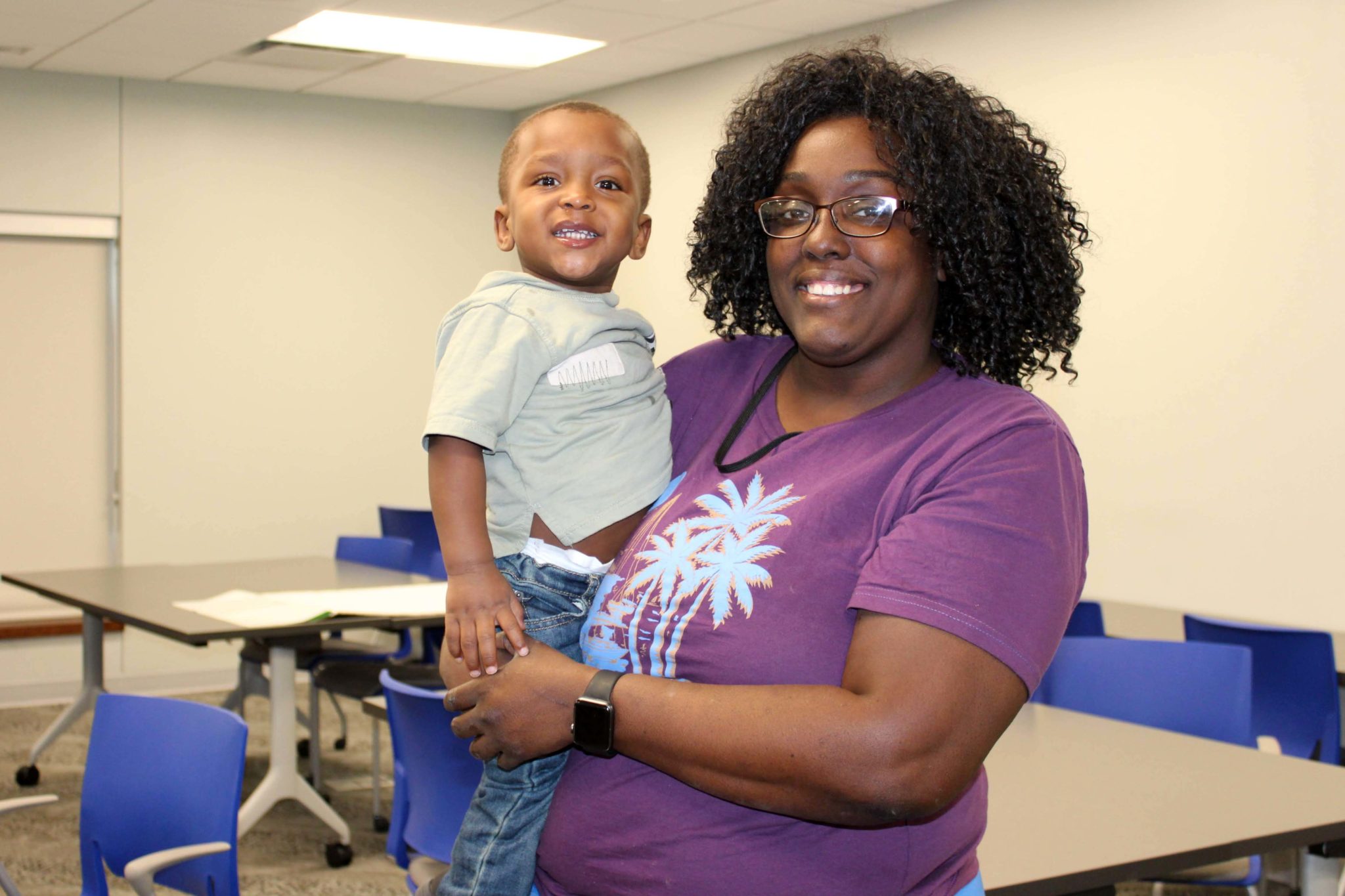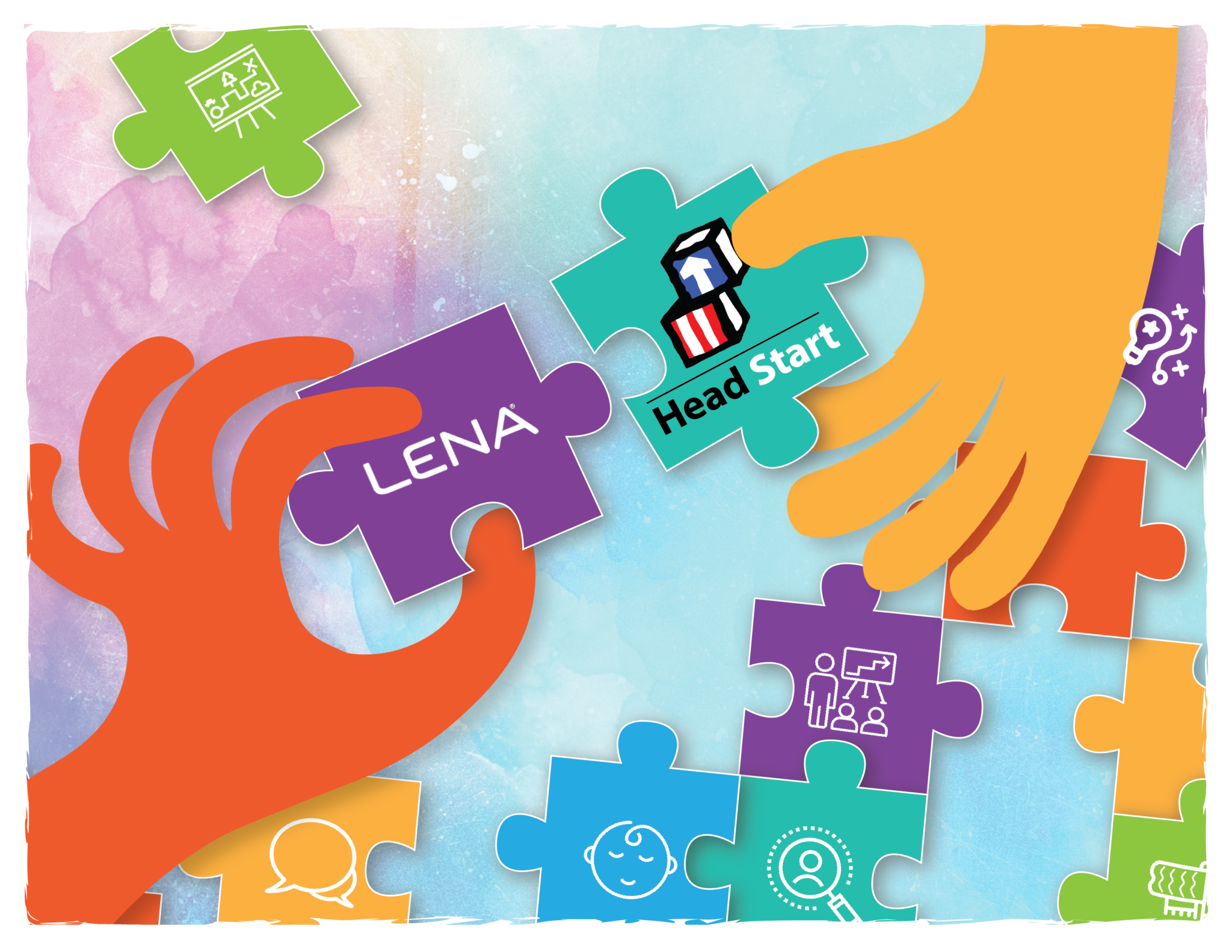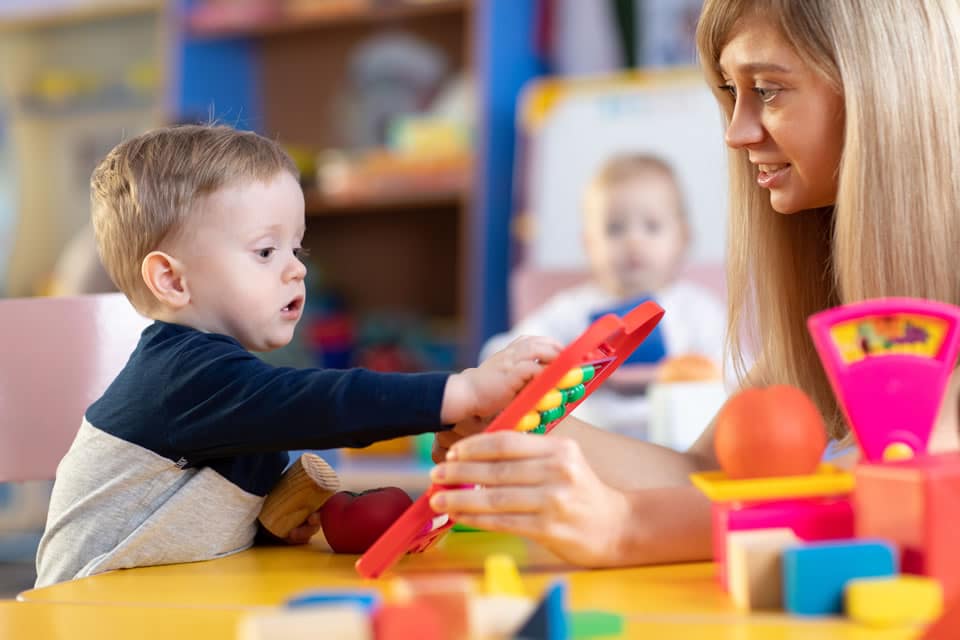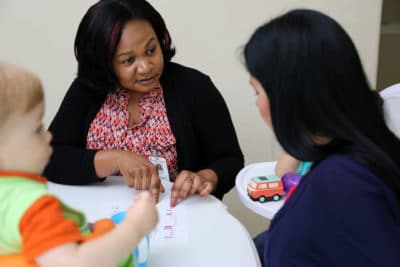 How can Early Head Start programs enhance home-visiting services? Many have turned to LENA Home, a tool to help families and home visitors collaborate to improve children’s language environments. Designed to be added on to existing parent-coaching curriculums, LENA Home uses feedback from LENA’s “talk pedometer” technology combined with short coaching sessions to help adults learn to increase the quantity and quality of adult-child talk. Here’s how some Early Head Starts are using LENA Home:
How can Early Head Start programs enhance home-visiting services? Many have turned to LENA Home, a tool to help families and home visitors collaborate to improve children’s language environments. Designed to be added on to existing parent-coaching curriculums, LENA Home uses feedback from LENA’s “talk pedometer” technology combined with short coaching sessions to help adults learn to increase the quantity and quality of adult-child talk. Here’s how some Early Head Starts are using LENA Home:
The Community Action Agency of Siouxland serves families in northwestern Iowa through outreach programs which include Early Head Start home visiting services. In 2018, the agency added LENA Home to the Parents as Teachers curriculum used during home visits.
“I think the best part of LENA is the self-awareness it can bring. Parents are noticing trends of less interaction and talking when the television or other electronics are on or how certain parts of the day seem to be where their strengths lie. This gives them opportunities to adjust what is not working and emphasize what is. The families I worked with seemed to appreciate this aspect of LENA as well. They got to see their daily interactions from a new perspective with objective information, and they were excited to reach goals and make improvements.”
-Christine
Saravia and her team began their implementation on a small scale as they learned how to use LENA technology, understand the Coaching Sessions Guide, and interpret the language environment data. Though families initially struggled with learning to use the technology, the obstacles have eased as they move towards launching their second cohort this fall. They’re planning to create a professional learning community for home visitors to collaborate on their approach to lessons and have seen an uptick in interest about the program as families share their experiences at monthly gatherings.
“I think the best part of LENA is the self-awareness it can bring,” Home Visitor Christine explained. “Parents are noticing trends of less interaction and talking when the television or other electronics are on or how certain parts of the day seem to be where their strengths lie. This gives them opportunities to adjust what is not working and emphasize what is. The families I worked with seemed to appreciate this aspect of LENA as well. They got to see their daily interactions from a new perspective with objective information, and they were excited to reach goals and make improvements.”
For Leticia, a parent who participated in the first cohort, using LENA technology helped her learn to use more descriptive language as she responds to her son’s needs.
“I’ve learned to encourage Anthony to say more words. In the past, I would just give Anthony what he was pointing to or crying for. Now, when he wants something, I will name what I think he is asking for and then have him try to say the word, too,” she said.
And the best part? The LENA Home coaching and feedback has helped families who have children with language delays to increase the amount of adult words spoken by 32 percent during the course of the program.
Lumin Education offers early childhood learning programs for children ages 0-9 in Texas and uses the Parents as Teachers curriculum during Early Head Start home visits. They incorporated LENA Home because, “it’s so precise and so visual,” as Education Manager Ruthy Suni explained.
Suni has found that it works well for families with lower literacy levels and is easy for parents, home visitors, and administrators to use and understand..
“The curriculum and the way that the online resources are built is so user-friendly. It’s quite easy for the staff to navigate,” she said.
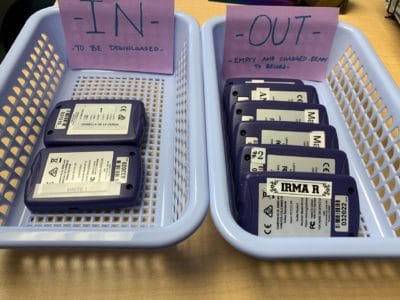
Creating systems has helped the home visitors use the LENA Home effectively. For example, the team designated one laptop for use with LENA and created a check-in and check-out system for LENA devices.
She’s hoping that LENA Home can help Lumin to boost children’s language and literacy skills, the Head Start domain where the children they serve show the least proficiency.
“Funders like to see that when we saw we were lacking, we implemented a program to support that,” she said. “They love seeing the LENA data because it’s so graphic.”
After all the families have completed the three-month program, she plans to use the high-level progress report to show data to funders and other stakeholders. Next year, she plans to open enrollment just twice during the year – in January and in June — to make it easier to manage data and devices and help the home visitors keep track of who’s doing what.
Creating systems has helped the home visitors use the program effectively, she said. For example, the team designated one laptop for use with LENA and created a check-in and check-out system for LENA devices. Each family receives a basket to store their supplies between LENA Days.
“This is helping us to meet our goals — to increment language, to take turns. It doesn’t take the place of Early Head Start requirements, however, it enhances the information we can give parents in regard to language, social, and emotional development,” she said.
The Santa Clara County Office of Education provides oversight and centralized services to 31 county school districts and directly serves students through special education programs, alternative schools, Head Start and state preschool programs, and migrant education. In 2018, the Early Learning Services Department began piloting LENA Home during Early Head Start home visits to better serve children learning two languages.
“Our dual-language learners who are at or below the federal poverty level are the ones being affected the most when it comes to language and literacy development,” Reyna Dominguez, Early Head Start supervisor said. “We could see that LENA could help us be more intentional and strategic about improving children’s ability to have more language, which is what appealed to me about the program.”
After piloting for several months, the team officially launched LENA Home with about 20 parents in 2019.
“One thing I really like is that LENA works with languages other than just English — it supports the home language environment no matter what language families speak,” Diep Tang, a home visiting specialist said. “The parents get really excited when they see the reports and see the actual measures of how much they talked to their kids and how much they improved. It’s really meaningful, empowering, and encouraging to the parents.”
Tang has worked to guide the home visiting team as they learn how to use the LENA technology and curriculum, helping to get the staff on board and troubleshooting problems.
“Once we see our parents succeed, we’re also really happy,” she said. “When my colleagues talk about families who are thriving, they’re always smiling. There are always fun, anecdotal stories to tell about how families react and how the program is impacting kids.”
The team sees LENA Home aligning with four key dimensions of the Head Start Parent, Family, and Community Engagement Framework: family well-being, positive parent-child relationships, families as lifelong educators, and families as learners.
“Our children deserve the best resources available, and LENA is one of those resources that all children should have access to. It gives families the opportunity to learn about ways of being with their children that are going to help them achieve language milestones, do better in school, and be successful in life,” Dominguez said. “Why wouldn’t we want to do this? This is an opportunity to give children the best life that we can.”
As the program in Santa Clara progresses, the team hopes to expand the number of families enrolled and identify which data they want to use and analyze in evaluating child outcomes.




